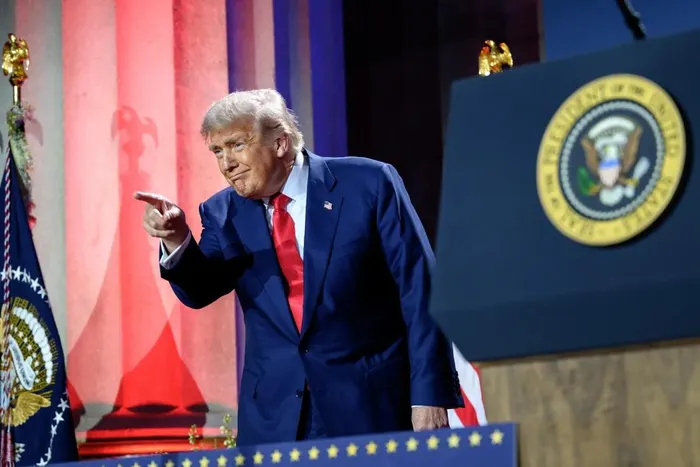Trump's G20 Summit boycott: Minimal impact, says expert

Kgothatso Shai, international relations expert and politics professor at the University of Limpopo believes the US's President Donald Trump's decision to boycott the G20 Summit will have minimal impact.
Image: File/ The White House
The United States (US) President Donald Trump’s decision to boycott the upcoming G20 Summit in Johannesburg will have minimal impact, said an international relations expert Kgothatso Shai.
Shai, a politics professor at the University of Limpopo, believes the real work has already been done in over 130 ministerial and official G20 meetings held this year.
“The role of the Presidencies in this context is largely ceremonial. But the reality is that real work has happened in the 130-plus ministerial and official G20 meetings that have taken place this year. With the oncoming summit, its expected role is to consolidate several sectoral agreements into a unified declaration of the leaders,” he said.
Themed "Solidarity, Equality, Sustainability," the G20 Summit will take place on November 22 to 23 at Nasrec Expo Centre in Johannesburg, bringing together world leaders to deliberate on pressing global issues, including climate change, technological innovation and economic growth.
Shai said the US’s absence will not diminish the summit's importance, saying that the summit can still effectively address global challenges like climate change and economic inequality.
“Global solidarity remains a pipe dream. Capitalist nation states such as the US survive by perpetuating existing divisions within the society. Sadly, it appears that other countries like Mexico and Argentina may also stay away from the show due to unclear reasons,” he said.
He said the US absence from the summit is unprecedented, making it challenging to predict how the presidency handover will unfold.
However, he said If the US does not attend it is still possible to hand over the presidency, noting that physical presence only projects a symbolic value.
“However, Trump still has an opportunity to relax his hardline stance. If the US does not show up at all, it is still possible to hand over the presidency, hence physical presence only projects a symbolic value. Real work has to happen beyond the handover moment,” he said.
Shai believes South Africa has limited options at this stage, given the US decision to boycott is based on false claims linked to Trump’s belief about white genocide in the country.
“South Africa has done everything possible to clarify and/or correct the false claims narrative. The US insistence on this false claim attests the desperation to abuse as a scapegoat to bully or kowtow Pretoria into American demands and pressures,” he said.
He also stated that the US absence will undermine the G20's effectiveness in addressing global challenges.
“Whether you like it or not, the US is a global superpower. Its actions, good or bad, have global implications. While this may be deemed as a loss of opportunity for the US, the reality is the envisaged absence is a spoiler for South Africa. South Africa stands to lose more from the US absence, hence this represents a missed opportunity for Pretoria and Washington DC to rekindle following their recent fallout,” Shai said.
According to him, there is no potential threat for South Africa to lose its seat at the G20 table due to the US absence.
“Not at all. Many countries are sympathising with South Africa. They may not grandstand, but they clearly see the ongoing actions of the US as a continuation of US’s strategy of bullying, exploitation and expansionism,” he said.
Minister in the Presidency Khumbudzo Ntshavheni expressed optimism that South Africa is ready to host the G20, saying: "We want South Africans to feel comfortable that their country is going to lead this G20."
President Cyril Ramaphosa last week said the US absence won't affect the G20 programme and that the summit will proceed as planned, adding that the US decision is "their loss".
On Sunday, Dr Nomvula Mphahlele, a researcher on SA foreign policy, also shared the sentiment that South Africa is unlikely to lose its G20 seat given that a country’s inclusion is voted by members and not just by one person.
rapula.moatshe@inl.co.za